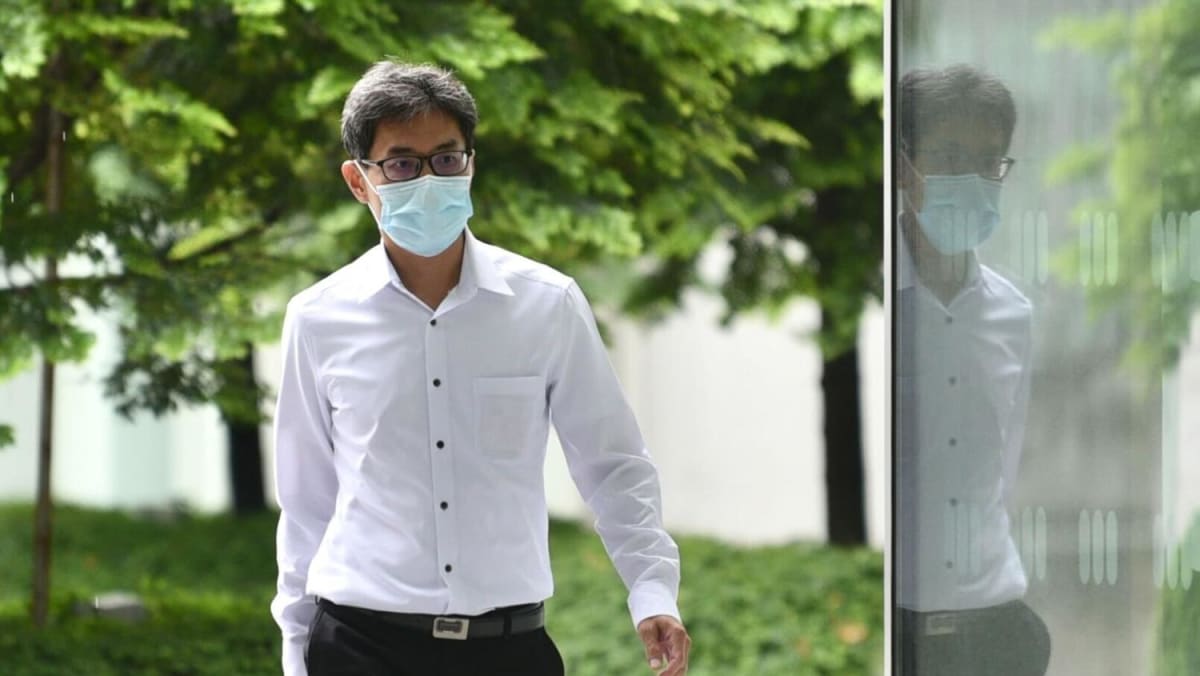SINGAPORE: An Immigration and Checkpoints Authority (ICA) officer who was convicted of receiving bribes in the form of money and sex had his jail term increased on Tuesday (May 27) after appeals from both sides at the High Court.
Teo Hwee Peng was initially handed a jail term of two years and nine months in the lower court in August 2023, and a penalty of S$2,634 (US$2,000).
On Tuesday, his jail term was increased to four years by Justice Vincent Hoong, who said he did not find the longer jail term to be “crushing” given the circumstances.
Teo, who joined the ICA in April 1999, has been interdicted from service since Nov 25, 2020.
In response to CNA’s queries, the ICA said that appropriate disciplinary action would be taken against Teo under the civil service disciplinary framework. “ICA is unable to share further at this juncture,” the statement read.
BACKGROUND
Teo helped two women extend their stay in Singapore in exchange for sex, money and loans. He devised a scheme so that the pair, both overstayers, could obtain Special Passes that allowed them to remain here.
The offences were between July 2018 and July 2019, and the two women involved were Chinese nationals Cheng Wenjuan and Liang Qinglan.
Teo attempted to obtain S$1,500, a free massage and sexual services, and an unspecified amount of cash from Ms Cheng, who died by suicide in August 2021. From Ms Liang, Teo obtained cash, cash loans, free sex and attempted to obtain an Apple iPhone X.
Teo had claimed trial to 12 corruption charges. A district court convicted him on eight counts and acquitted him of four. Teo appealed his convictions, while the prosecution appealed the acquittal for three of the four charges.
The prosecution was successful in its appeal, and Teo’s acquittal on the three charges was overturned in March. Teo failed to have his conviction reversed.
On Tuesday, Teo was sentenced on 11 corruption charges in total, and was handed longer jail terms on two of these charges.
PROSECUTION PROPOSES SENTENCING FRAMEWORK
Arguing on the sentences to be imposed on Tuesday, Deputy Public Prosecutors David Menon, Andrew Chia and Jheong Siew Yin proposed a sentencing framework for public sector corruption offences, drawing from decisions and frameworks in past court cases.
They said that the framework would be a better approach than what the lower court judge had relied upon, which was a series of past High Court cases.
“Relying on these cases, the (lower court judge) imposed sentences that did not reflect the highly premeditated nature of Teo’s offences and the resultant harm caused to ICA. Instead, (the judge) placed excessive weight on the quantum of gratification Teo received,” said the prosecution.
The prosecution called for Teo to be jailed between four-and-a-half years and five-and-a-half years if the High Court declined to use its framework.
Justice Hoong rejected the framework, describing it as “premature”.
He noted that in a past case, the Chief Justice had declined to develop a framework laid down by the Court of Appeal on the basis that he was sitting as a single judge. In another case, the framework was laid down by a three-judge coram.
“I find it neither necessary nor appropriate for me, sitting as a single judge, to develop this framework for the same reasons,” said Justice Hoong.
He said the framework was not necessary anyway, as existing sentencing principles and past cases could apply to Teo’s case.
SENTENCING ISSUES
On appeal, Teo, represented by lawyer Narayanan Vijya Kumar, repeatedly argued that low or no harm had been caused by his actions. He said that no harm could be caused to ICA given that he alone could not decide whether a Special Pass could be issued to Ms Liang.
Justice Hoong called this assertion “untenable” as Teo had “abused the institutional knowledge and connections” he had as an ICA officer to arrange for the women to be given Special Passes.
He agreed with the prosecution that actual harm was caused to ICA and the public at large, echoing what the judge in the lower court had said about how Teo had “undermined the integrity and diminished the effectiveness of ICA intelligence operations”.
Ms Liang, who was able to remain in Singapore on the Special Pass, provided illegal sexual services, Justice Hoong noted.
The High Court Judge found Teo’s service to ICA, which his lawyer submitted as a mitigating factor, to be a “neutral factor at best”.
He also rejected Teo’s argument that he did not plan or premeditate his offences.
“I am unable to accept this argument, as it is starkly incongruent with the factual record. I agree with the (lower court judge) that Teo’s offences were clearly planned and premeditated, for it was Teo who devised the scheme, involving multiple unwitting ICA personnel, to facilitate Ms Liang’s stay in Singapore.
“Additionally, I find that this holds equally true for the offences relating to Cheng, as the same scheme was used to assist her in securing a Special Pass.”
Turning to the specific charges, Justice Hoong took into account the aggravating factors for the offence in calibrating longer jail terms.
These include how ICA and the public had suffered harm, and how Teo premeditated the offence.
The High Court Judge also dismissed Teo’s argument for fines for several charges.
“At this juncture, I shall disabuse Teo of the notion that fines are an available sentencing option.
“It is trite that for corruption offences under the Prevention of Corruption Act which involve government servants, the norm is a custodial sentence unless the facts are exceptional,” said Justice Hoong.
